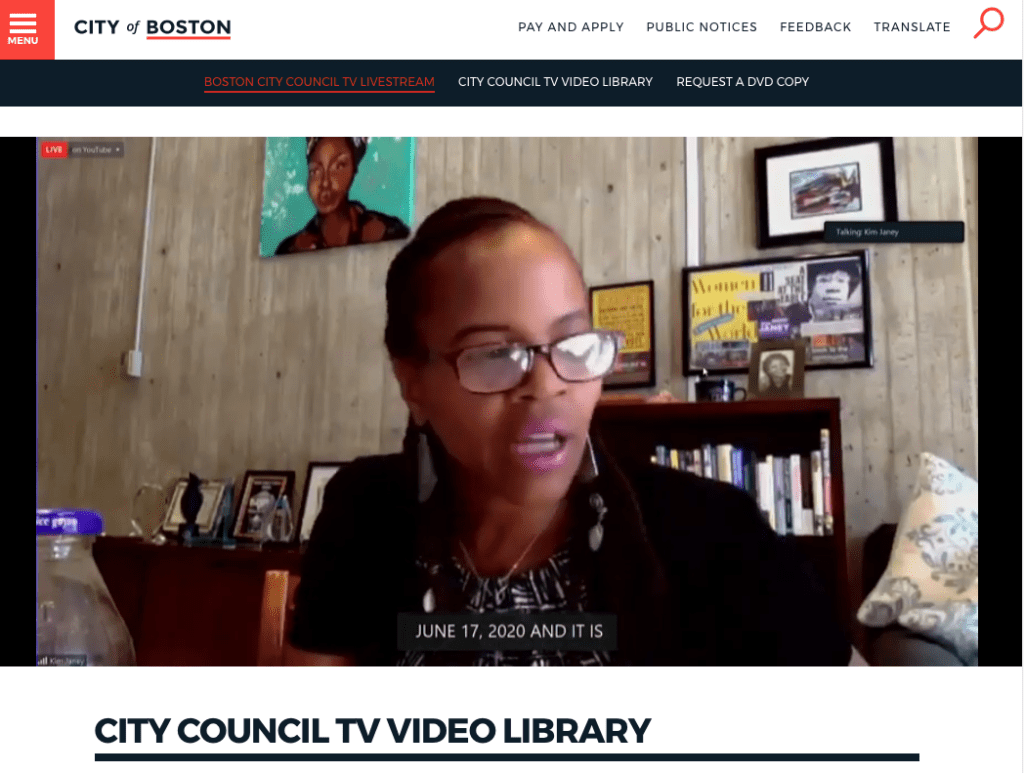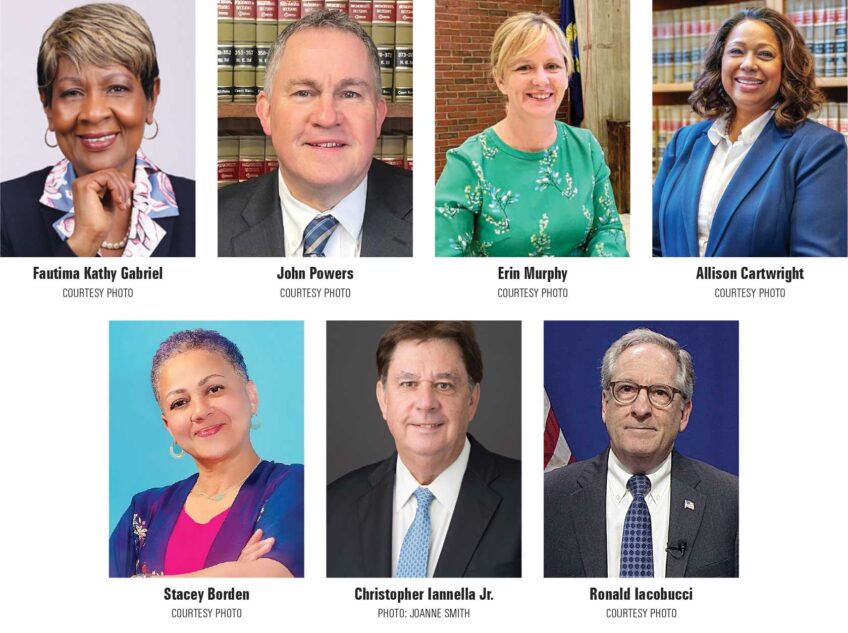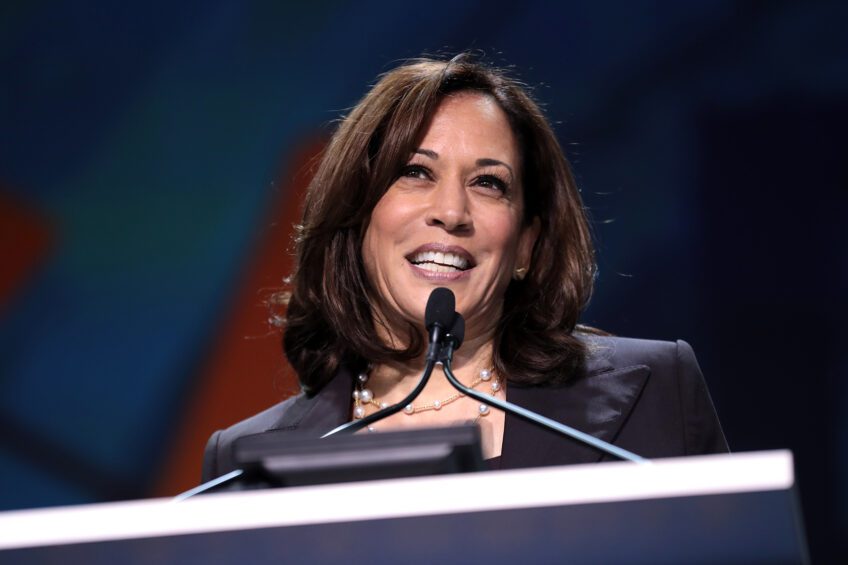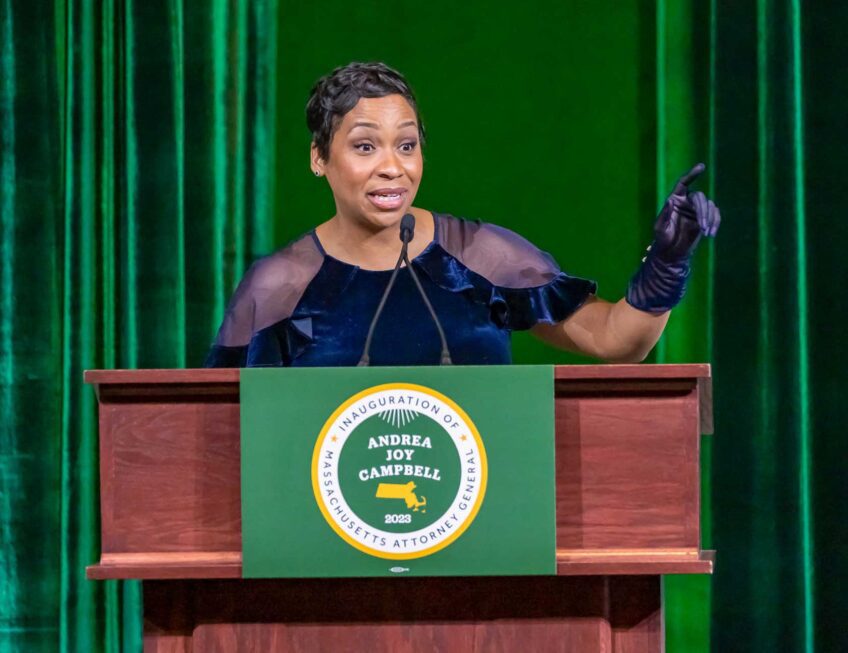Council budget vote splits on race lines
Councilors of color call for deeper cuts to Boston Police Dept. budget

Boston City Councilors voted eight to five in favor Mayor Martin Walsh’s fiscal year 2021 operating budget last Wednesday after more than two hours of discussion.
The vote came after lobbying on one side from activists and councilors who called for a “no” vote and advocated cutting 10% from the Boston Police Department budget to fund youth services, housing and social services, and on the other side from city officials and nonprofits receiving city funding who argued for a “yes” vote.
The vote broke mostly along racial lines, with most of the body’s Black and Latino members arguing that a “no” vote would advance racial justice, while a “yes” vote would support incremental change. All of the council’s white members voted in support of the budget.
“There is a side to take,” said City Council President Kim Janey, who cast a “no” vote. “And that’s the side of justice. And that’s where I want to stand today.”
Voting against the budget were Janey and councilors Ricardo Arroyo, Andrea Campbell, Julia Mejia and Michelle Wu.
In advance of Wednesday’s vote, much of the Council’s attention was on the competing proposals to adjust police funding. On one side, councilors of color and a coalition of activist groups called for a 10% cut to the BPD budget, with the resulting $40 million in funding going to antiviolence efforts, education and youth programming. On the other were those who supported the Walsh administration’s call for a $12 million cut, or 2.4%, with funds coming out of the BPD’s overtime budget.
Wu pointed out that Walsh’s proposal to cut the department’s $60 million overtime budget would not necessarily diminish the overtime hours officers work or their pay. Without a clear commitment to reducing overtime, city officials would simply draw on contingency funding to pay for police overtime, Wu said.
“Our budget should represent meaningful change, not empty symbolism & budgetary sleight of hand,” she tweeted.
Councilor Lydia Edwards, the sole Black councilor who voted “yes,” said she received calls from those urging “no” and “yes” votes on the budget. In a statement sent to the media, she acknowledged pervasive dissatisfaction with the proposed budget.
“I know that a lot of people are frustrated by the fact that this budget doesn’t answer the cry for systemic change,” Edwards said in a written statement sent to the news media. “I agree. But the system doesn’t allow for that kind of change or even conversation.”
Other councilors who voted in favor of passing the budget cited calls from city workers who were told that the council’s refusal to pass the budget could lead to layoffs.
Councilor Kenzie Bok said the city spends too much on “over-policing” Black and brown communities and argued police spending should come down “on a timeline that is urgent” for next-year’s budget. She also called for hearing on how to cut the department’s overtime budget.
Arroyo advocated for greater investments in youth services and programs that support communities, arguing that coming budget cycles will be too tight to stake out such investments.
Wu also argued for more comprehensive change.
“The bread and butter that spreads structural racism are evasion and procrastination,” she said. “Passing this budget is a message to those [advocating for change]. It’s a message that they should be satisfied with incremental change.”
Activists with the youth group For The People issued report cards on the councilors, grading them on issues they support, including removing Boston Police officers from schools, abolition of the department’s gang database, support for the department’s cooperation with ICE and police funding. The mock report cards were pasted onto councilors’ homes and posted in public spaces.
“There’s a lot of things being done that aren’t what the people want,” said Arlyn Dionisio, an activist with the Roxbury Environmental Empowerment Project. “As an elected officials, you have to respond to what your constituents ask. There’s a big difference between 2% and 10%.”
The council voted unanimously in support of the Walsh administration’s capital budget and school budget. This year, the administration has increased the $1.2 billion Boston Public Schools budget by $80 million, the largest increase in recent years.







